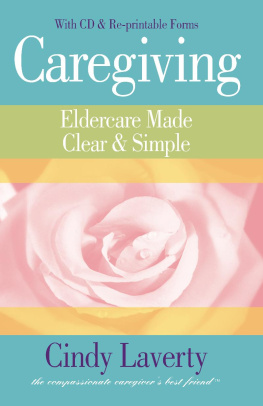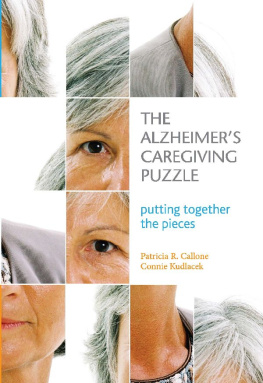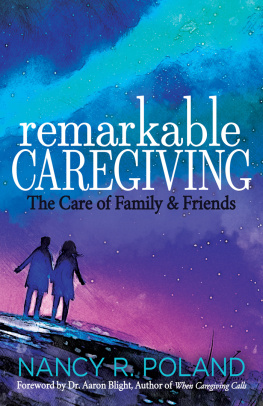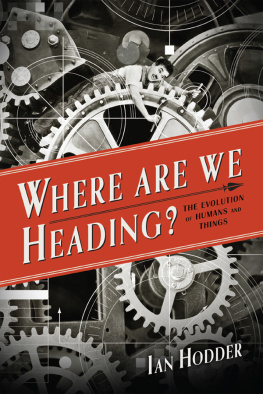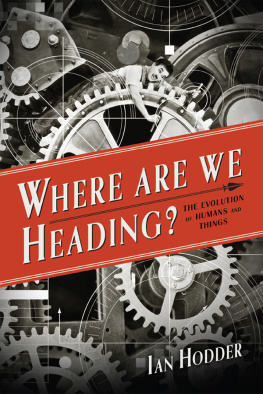NEW PERSPECTIVES ON MUTUAL DEPENDENCY IN CARE-GIVING
The book was published thanks to the institutional support for the development of the Office for Population Studies, Faculty of Social Studies, Masaryk University.
New Perspectives on Mutual Dependency in Care-Giving
ADLA SOURALOV
Masaryk University, Czech Republic
First published 2015 by Ashgate Publishing
Published 2016 by Routledge
2 Park Square, Milton Park, Abingdon, Oxon OX14 4RN
711 Third Avenue, New York, NY 10017, USA
Routledge is an imprint of the Taylor & Francis Group, an informa business
Copyright Adla Souralov 2015
Adla Souralov has asserted her right under the Copyright, Designs and Patents Act, 1988, to be identified as the author of this work.
All rights reserved. No part of this book may be reprinted or reproduced or utilised in any form or by any electronic, mechanical, or other means, now known or hereafter invented, including photocopying and recording, or in any information storage or retrieval system, without permission in writing from the publishers.
Notice:
Product or corporate names may be trademarks or registered trademarks, and are used only for identification and explanation without intent to infringe.
British Library Cataloguing in Publication Data
A catalogue record for this book is available from the British Library
The Library of Congress has cataloged the printed edition as follows:
Souralov, Adla.
New perspectives on mutual dependency in care-giving / by Adla Souralov.
pages cm
Includes bibliographical references and index.
ISBN 978-1-4724-5666-3 (hardback) -- ISBN 978-1-3155-9805-5 (ebook) -- ISBN 978-1-3170-8817-2 (epub) 1. Caregivers. 2. Helping behavior. I. Title.
HM1146.S68 2015
362.0425--dc23
2015008100
ISBN: 9781472456663 (hbk)
ISBN: 9781315598055 (ebk-PDF)
ISBN: 9781317088172 (epub-ePUB)
Contents
List of Figures and Tables
Figures
Tables
Appendices
Acknowledgements
This book has been conceived and developed over a long period of time, and could never been completed without the help and support of number of people. Most obviously, I would like to thank everyone who gave their time to talk to me: the second generation Vietnamese children who took me to their childhood; their mothers whodespite their time-consuming jobsfound the opportunity to talk about their post-migratory lives; and the Czech nannies who quite openly spoke about the role of care-giving in their lives. Their willingness to speak about very private topics was invaluable.
A number of academic colleagues have helped and encouraged me. Professor Steven Saxonberg was my PhD supervisor and source of help and support throughout the writing of my PhD thesis, which forms the basis of this book. Professor Lise Widding Isaksen reviewed the PhD thesis and encouraged me to share my research findings with the international research community. Dr Martin Kreidl suggested publishing my dissertation as a book, and Professor Ladislav Rabuic helped me realize this idea by providing me with a one-year publishing grant at the Office for Population Studies. This book was published thanks to the institutional support for the development of the Office for Population Studies, Faculty of Social Studies, Masaryk University in Brno. I would also like to thank the Jan Hus Educational Foundation for the scholarship it awarded me, and which provided appreciable financial aid for undertaking my research. I am also deeply grateful to Judy Mayers, who did the English language editing of this book.
This book would also never have been completed without the warm support of my friends who were willing to listen to my stories from the field. Notably, I want to thank Denisa Sedlkov for so many hours spent discussing the emerging text. I also want to thank Eva lesingerov, my friend and colleague from Social Anthropology at the Faculty of Social Studies, who has been supporting me since the start of my academic career, and who has always believed in what I do and how I do it.
I dedicate this book to two women who shaped my personality, both as a human being and as a researcher and analyst: my mother, Vra Souralov, and my grandmother, Anna Souralov. In the spring of 2012, my grandmas age did not allow her to continue living alone in her house. I started living there with her and caring for her. Our relationship had always been very warm and close. However, the experience of living with my grandmother made our relationship even warmer and closerwe became mutually dependent on each other. It was a time when I was finishing the interviews with the children of Vietnamese immigrantswho often develop deep emotional ties with their Czech grandmothersand interviews with these Czech grandmotherswho take care of their Vietnamese grandchildren, often with deep affection. When listening to their stories, I felt myself moving back to my own childhood and forward again to the present. Like them, I was the child of a working mother. And like several of them, I had warm relations with my grandma, who had always taken care of me. This close relationship continued, despite the fact our roles had changed over the last few years, as it was I who became her care provider. These two experiences lit my way as a researcher and analyst from the time of the initial definition of research objectives, to the time of the final analysis and writing. Thank you, mum and grandma, for having always supported me, believed in me, and done what was best for me, even though it was not always easy.
Chapter 1
Introduction: Where do the Children Play?
Ms. Pham is a 25-year-old Vietnamese immigrant woman who has one 3-year-old daughter named Than. She came to the Czech Republic eight years ago and now works in the immigrant economy as an entrepreneur, the owner of a clothing shop. When her daughter was 8 months old, Ms. Pham started working 10 hours a day. Because of her incorporation into the labour market she had to look for another woman to care for little Than. Ms. Brhlkov is a 55-year-old Czech woman. She has three adult children of her own with whom she spent 12 years on parental leave. Now she is a pensioner informally working for Ms. Pham. She does care-giving work for little Than with whom she spends five days per week, from morning to evening. Than calls her grandma and Ms. Brhlkov feels happy, because she does not have grandchildren yet. These women of three generations are part of the global division of reproductive labour, but their situation differs from that of Filipina domestic workers in the USA, Polish domestic workers in Germany, or Czech au pairs in the UK.
This book focuses on the experiences of Vietnamese immigrant women who hire Czech nannies (such as Ms. Pham), the experiences of Czech women who work as nannies for Vietnamese immigrant families (as Ms. Brhlkov) and finally the experiences of second generation immigrant children who are brought up by Czech nannies. It looks into the issue of care work, migration and family relations. During the last two decades, an increasing number of households employed a care/domestic worker. Over decade ago, the National Survey of Americas Families showed that 4 percent of the children of immigrants under the age of three were cared for by nannies/babysitters (compared to 6 percent for children of US-born citizens; Matthews and Ewen, 2006). The increasing number of households that employ care workers has led to a boom in the research on this topic (Sarti, 2014). However, these studies focused on the 6 percent of households, comprised of non-migrant (and usually well-off, middle-class) families that hire migrant care/domestic workers (Parreas, 2001; Anderson, 2000; Momsen, 1999; Lutz, 2008; 2011; Hondagneu-Sotelo, 2001; Macdonald, 2010; Chang, 2000; Lan, 2006; Isaksen, 2010, and so on). Thus, they have neglected the 4 percent of immigrant households which hire care workers. This is especially strange given the growing literature on second generation immigrant children. Hardly any studies have explored the care strategies of working immigrant parents and the consequences for the lives of their children. Thus, in recent decades, two parallel scholarly trends have developed in the international scientific discourse: scholarship on care work and scholarship on second generation immigrant children.


